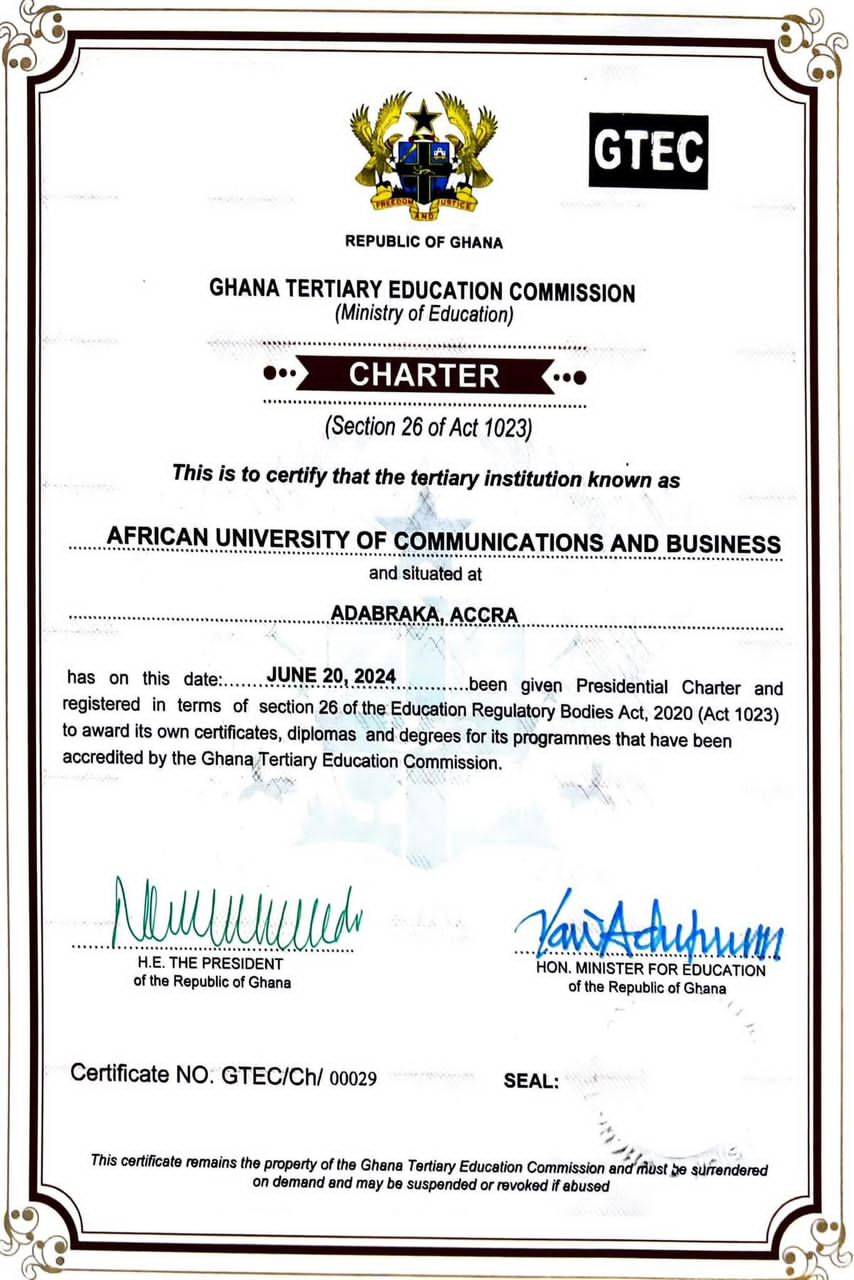President Akufo-Addo Grants Presidential Charter to 14 Private University Colleges to Become Fully Fledged Universities.
In a landmark ceremony held at the Jubilee House in Accra, President Nana Addo Dankwa Akufo-Addo granted presidential charters to 14 private university colleges in Ghana, elevating them to fully-fledged universities. This milestone marks a significant achievement for these institutions, which have demonstrated exceptional resilience and ingenuity in overcoming challenges and embracing opportunities for growth.
The 14 institutions that received the charter include Academic City University College, Haatso-Accra; KAAF University College, FettehKakraba; Entrance University College of Health Sciences, Spintex-Accra; Garden City University College, Kenyase-Kumasi; Family Health University College, Teshie-Accra; Ensign Global College, Kpong; and Thrivus Institute for Biomedical Science and Technology, Lashibi-Accra. The rest are Heritage Christian University College, Amasaman-Accra; University College of Gold Coast (formerly known as Accra Business School), Spintex-Accra; Knutsford University College, East Legon-Accra; Nobel International Business School, South Legon-Accra; Accra Metropolitan University College (formerly known as Laweh University College), Nungua-Accra; African University College of Communications and Business (formerly known as African University College of Communications), Adabraka-Accra; and National Defence College (formerly known as Kofi Annan International Peace Keeping Training Centre and Ghana Armed Forces Command and Staff College), Teshie-Accra.
With this charter, these institutions can now award degrees, diplomas, and certificates independently, marking a significant step towards autonomy. President Akufo-Addo emphasized that this achievement demonstrates the government's commitment to creating an enabling environment for university colleges to become autonomous. He noted that his administration had earlier granted a number of such institutions presidential charters, demonstrating his government's commitment to continuously creating an enabling environment to see more university colleges becoming autonomous.
The Minister of Education, Dr. Yaw Osei Adutwum, noted that the granting of presidential charters offers new opportunities and challenges for the respective institutions. He emphasized that these institutions must show focus and fierce determination to succeed in the post-charter era. Dr. Adutwum also highlighted the rigorous process that these institutions underwent to attain the charter, meeting stringent criteria established by the Ghana Tertiary Education Commission (GTEC). These criteria include excellence in governance, quality assurance, academic delivery, research, and community engagement.
The tertiary education system in Ghana is composed of public and private institutions. Public universities are established by acts of parliament with presidential assent to award their own degrees and diplomas. On the other hand, private university colleges go through periods of academic mentorship and supervision by mentoring public institutions for the award of degrees and diplomas. Until recently, private university colleges, after 10 years of having demonstrated sufficient capacity in governance, finances, academic matters, and infrastructural development, could then apply to the National Accreditation Board for a presidential charter to enable them to award their own degrees and diplomas.
However, following the creation of the Ghana Tertiary Education Commission under the Education Regulatory Bodies Act 2020 Act 1023, it is no longer mandatory for new tertiary education institutions to go into affiliation arrangements with existing chartered institutions to be accredited. This means that new institutions will have to demonstrate their capacity to operate effectively from the word go.



No comments yet
Be the first to share your thoughts!